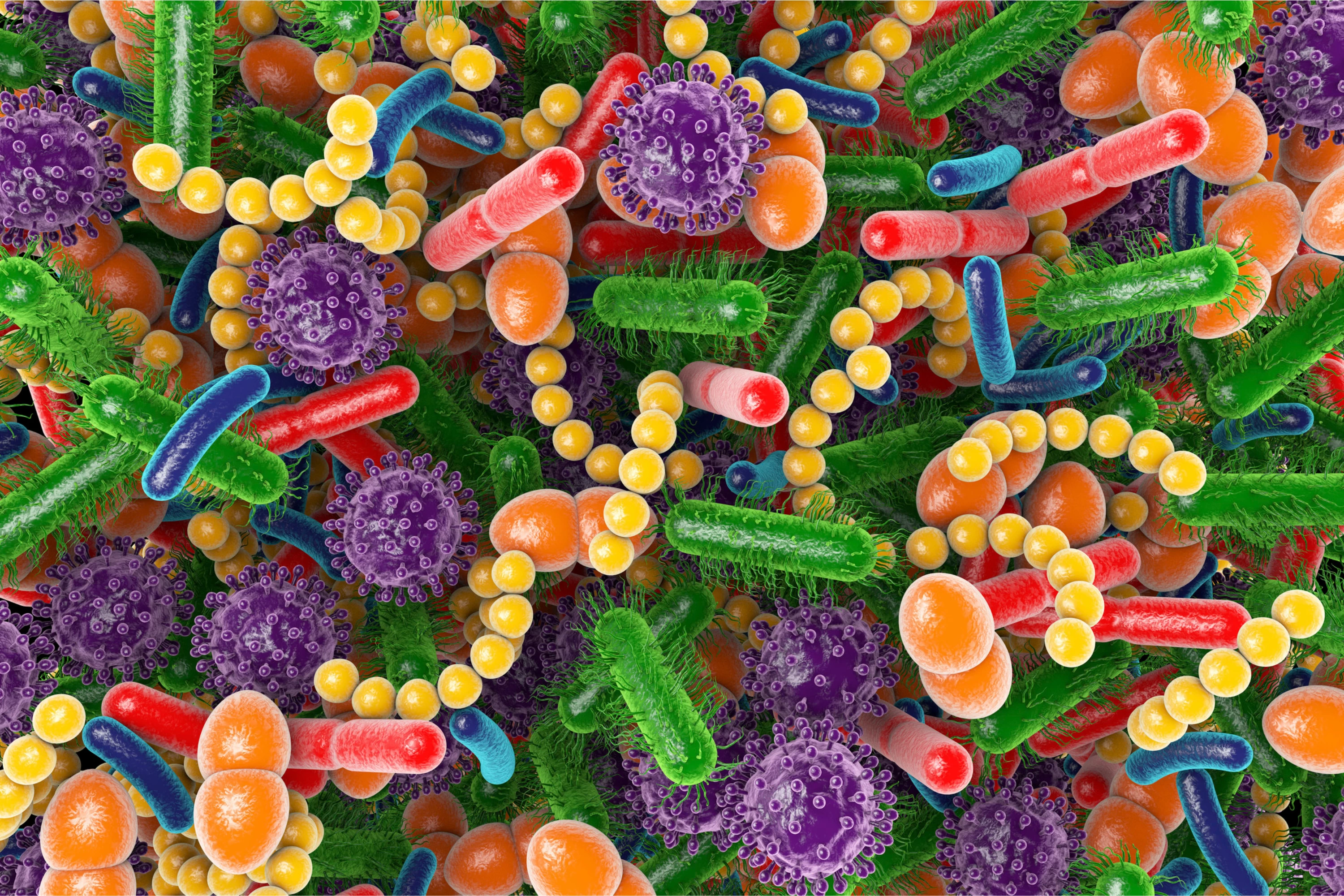
- 28th April 2023
Table of Contents
Microbes in the Gut and Fasting
The practise of intermittent fasting has emerged as a trendy approach to dieting in recent years. The goal of this strategy is to induce weight loss and other health benefits by limiting food intake for set periods of time. However, studies show that intermittent fasting can also affect the microbiota in the digestive tract. The microorganism community that lives in and around the digestive tract, known as the gut microbiome, is essential to human health. Intermittent fasting has been shown to change the balance of gut bacteria, favouring the growth of beneficial species while limiting the spread of harmful ones. It appears to raise concentrations of the bacterium Akkermansia muciniphila, which has been linked to enhanced metabolic function and decreased inflammation. In addition, autophagy, the process by which cells degrade damaged components, may be triggered during intermittent fasting, which can aid in the elimination of harmful microbes in the digestive system. Further study is required to fully understand the effects of intermittent fasting on the gut microbiome and their potential long-term effects on health. However, these preliminary results suggest that intermittent fasting may provide another avenue for supporting optimal gut health in addition to healthy eating habits and regular exercise.
Intermittent fasting's positive effects
For a variety of reasons, including weight loss and improved health, the intermittent fasting diet has become increasingly popular in recent years. The beneficial effects on the gut microbiome are one of the main reasons why intermittent fasting is so effective. Intermittent fasting has been linked to major shifts in the make-up and diversity of gut bacteria, which are essential to good health. Intermittent fasting has been shown to improve gut microbiota by raising the number of beneficial bacteria like Lactobacillus and Bifidobacterium and lowering the number of pathogenic ones like Clostridium perfringens. Digestion, inflammation, immunity, and weight loss are all helped by a shift towards a more diverse and beneficial microbial community. Furthermore, autophagy, a cellular process that removes dead cells and waste products from the body, is stimulated by intermittent fasting. This procedure aids in maintaining a healthy intestinal lining by facilitating the removal of dead cells and stimulating cell turnover. This, in turn, helps the body absorb more nutrients from the food it eats, which benefits the digestive tract as a whole. In conclusion, if you're looking to improve your digestive health, intermittent fasting may be a good way to positively influence your gut microbiome.
Alterations in the Gut Microbiome Caused by Fasting

Fasting, especially intermittent fasting, has gained popularity as a means of improving health and reducing body fat in recent years. The gut microbiome is one area where fasting can have an effect on your health. The composition and diversity of gut bacteria have been shown to shift after even brief periods of fasting. Changes in the gut's environment, like an increase in acidity or a decrease in intestinal motility, can result from a lack of food intake, which is common during fasting. Some bacteria may flourish while others perish as a result of these shifts. Furthermore, studies have shown that fasting may increase the number of beneficial bacteria in the body, including those that play a role in immune function and anti-inflammatory processes. There is clearly a relationship between intermittent fasting and the gut microbiome, but more research is needed to determine the precise nature of that relationship. If we know how our eating habits affect our gut health, we can make better choices about what and when to eat, which could improve our overall health.
What Happens to Bacterial Diversity During Intermittent Fasting?
Intermittent fasting is a method of dieting and managing one's health in which one goes without food for extended periods of time. Intermittent fasting may have far-reaching effects on the variety of gut bacteria, according to recent studies. There is evidence that intermittent fasting can alter the composition of the gut microbiome in a positive way. By reducing inflammation and promoting healthy gut lining, intermittent fasting may also increase bacterial diversity. Due to their importance in immune function, digestion, and nutrient absorption, gut bacteria must be in optimal balance for optimal health. More research is needed to confirm the exact effects of intermittent fasting on the gut microbiome, but preliminary findings suggest that this strategy can help improve digestive health in general. By increasing the number of beneficial bacteria in the gut and decreasing the number of harmful ones, intermittent fasting may help the immune system.
Possible Repercussions on Health and Illness
Intermittent fasting (IF) is a growing diet trend that involves calorie restriction at specific times of the day or week. Several health indicators, such as fat loss and insulin sensitivity, may improve with its use, according to the results of scientific studies. However, the effects of IF on the microbiome of the gut have also been investigated recently. The term "gut microbiome" is used to describe the community of microorganisms—trillions strong—that reside in and around the human digestive tract. Evidence suggests that IF can change the make-up of gut microbiota. For instance, one study found that restricting the time of day during which food is consumed led to higher concentrations of beneficial bacteria like Lactobacillus and lower concentrations of harmful bacteria like Clostridiales. Another study found that by increasing levels of Akkermansia muciniphila, a type of bacteria linked to better metabolic health, IF could reduce inflammation in the gut. While these results are encouraging, more investigation into the effects of IF on the gut microbiome and their implications for health and disease prevention is warranted. In any case, these preliminary studies suggest that intermittent fasting may offer benefits beyond just weight loss or blood sugar control by positively impacting our gut bacteria.

Intermittent fasting: health and safety concerns
The practise of intermittent fasting has gained popularity as a means of reducing body fat and improving health. However, there are a few precautions you should take into account before beginning this routine. The potential impact on your microbiome is a crucial consideration. Changes in the gut microbiome, linked to digestive problems and autoimmune disorders, have been linked to intermittent fasting. The foods eaten during these times are also very important to think about. Your gut microbiome will suffer even more from a diet high in processed foods and sugar. It's best to stick to eating windows where you can eat healthy, whole foods without feeling deprived. Before beginning an intermittent fasting regimen, it is essential to speak with a healthcare professional, especially if you have any preexisting medical conditions or are taking any medications. Women who are pregnant, those who have diabetes, and those who have low blood sugar levels should exercise caution when engaging in intermittent fasting.














